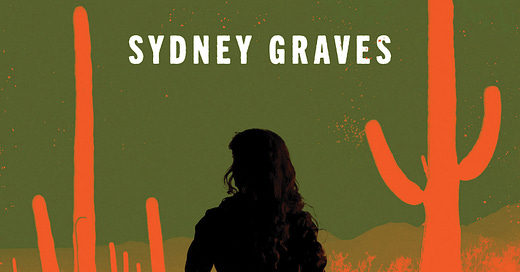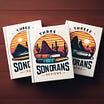🌵 Book Review: Unraveling Mysteries in the Desert in "The Arizona Triangle"
Delve into "The Arizona Triangle," a gripping novel that explores identity and environmental themes in Arizona’s vibrant landscape with a queer private investigator in an all-female agency.
😽 Keepin’ It Simple Summary for Younger Readers
👧🏾✊🏾👦🏾
🌵 "The Arizona Triangle" is a mystery book about a cool 🕵️♀️ detective who is part of an all-girls detective agency. The story talks about important things like being kind to the 🌍 environment and letting everyone be themselves, which helps make the world a better place. It also shows what it’s really like to live in Arizona, with stories about 💧 water and how we use it. It's not just a fun mystery; it's also about making us think about our world and the people in it! 💭✨
🗝️ Takeaways
📖 Fresh Perspective: The protagonist is a queer PI in an all-female detective agency, breaking genre norms.
🏜️ Rich Descriptions: Vivid imagery of Northern Tucson's landscape creates an emotional connection to the region.
♻️ Environmental Message: Highlights historical and current water crises, urging sustainability awareness.
🔍 Puzzle for Readers: Cleverly renamed locations invite local readers to uncover deeper connections.
💬 Challenging Themes: Addresses serious social issues, promoting discussions that reflect real-world complexities.
A Review of "The Arizona Triangle"
by Kate Christensen, aka “Sydney Graves”
By Three Sonorans Reviews
As someone who has spent countless hours among the bookshelves of the Catalina Library, where knowledge meets the dramatic backdrop of the Sonoran Desert and the Catalina Mountains, I approached "The Arizona Triangle" with both professional curiosity and personal connection. What I discovered was far more than just another mystery novel – it's a bold, unapologetic exploration of identity, environmental justice, and the complex tapestry of modern Arizona life.
Christensen's protagonist, a queer PI working in an all-female detective agency, represents a refreshing departure from the traditionally masculine-dominated noir genre.
As a social justice activist, I particularly appreciated how the author weaves LGBTQ+ themes naturally throughout the narrative, making them integral to the story rather than mere tokenism. This representation matters, especially in our current political climate, where book banning threatens to silence Arizona's diverse voices in the legislative district with the book-banning state Senator.
The mathematical precision of Christensen's plotting particularly appealed to my former academic self. Like a well-constructed proof, each story element builds upon the last, creating an elegant solution to the mystery at hand. The author's clever use of renamed locations – Delphi standing in for Oracle, Plato Valley for Oro Valley, you can guess what Mandarin Road is – creates an engaging puzzle for local readers while maintaining the narrative's universal accessibility.
What truly sets this book apart is its environmental consciousness. The author draws powerful parallels between the ancient Hohokam civilization's exodus due to drought and our contemporary water crisis. As cotton fields continue to consume precious desert water, Christensen's narrative serves as a poignant reminder of history's cyclical nature. This isn't just background detail; it's a crucial commentary on sustainability and our relationship with the land.
The vivid descriptions of Northern Tucson's landscape are more than mere scene-setting – they're a love letter to the region's unique beauty. From the saguaro-studded hills to the dramatic play of light across the Catalinas, Christensen captures the essence of our desert home with remarkable precision.
However, readers should note this isn't your typical "cozy mystery." The book tackles mature themes and complex social issues head-on, potentially making it controversial among our more conservative state legislators.
But isn't that precisely what good literature should do—challenge us, make us think, and spark important conversations?
For visitors and snowbirds, "The Arizona Triangle" offers an authentic glimpse into our corner of the Southwest, beyond the tourist brochures and retirement community advertisements. For locals, it provides a fresh perspective on familiar places, encouraging us to see our community through new eyes.
Final Verdict: Christensen has crafted a sophisticated mystery that doubles as a vital commentary on contemporary Arizona life. While the spicy content might raise eyebrows in certain circles, this only underscores its importance in our current cultural moment. As both a librarian and advocate for diverse voices in literature, I believe "The Arizona Triangle" deserves a prominent place on our shelves – and in our discussions about what makes contemporary mystery fiction relevant and meaningful.
Rating: 4.5/5 Saguaros 🌵
(A half saguaro deducted only because some of our more sensitive book club members might find certain themes challenging – though personally, I consider this a feature rather than a bug.)








